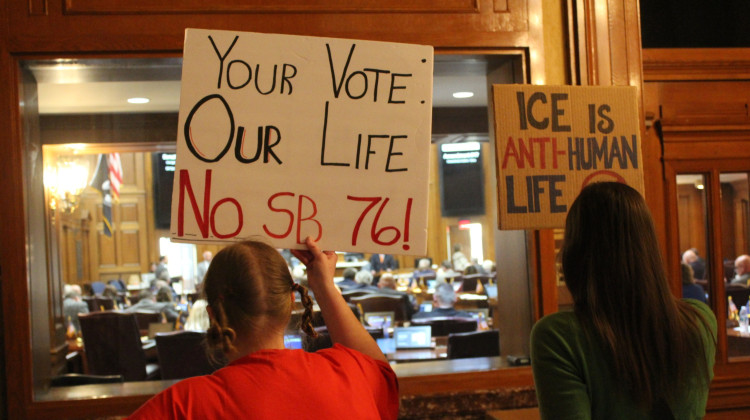
Sen. Jim Merritt (R-Indianapolis) is pushing legislation that would undo much of Indiana’s recent criminal code reform.
Brandon Smith/IPB NewsSen. Jim Merritt (R-Indianapolis) is pushing legislation that would undo much of Indiana’s recent criminal code reform.
The bill to change sentencing guidelines would cost the state at least $50 million a year.
Merritt stressed in his testimony that he wants to more harshly punish the worst offenders. But the bill also raises penalties for the lowest-level felonies. And the measure takes away discretion from judges to reduce sentences of a wide range of offenders – something Attorney General’s office legislative director Parvonay Stover says lawmakers should support.
“Now, I’m not a legislator but if I were, I’d be pretty annoyed that judges had the discretion to ignore the minimum sentences that you put into law and suspend them below those minimums,” Stover says.
Merritt says the measure is a response, in part, to violent crime in Indianapolis. The Republican senator is currently making a bid for Indianapolis mayor.
Sen. Tim Lanane (D-Anderson) says this kind of sentencing change shouldn’t be rushed.
“Usually when we do something on this magnitude, we’ll have taken some time to study it," Lanane says. "We hear from all the stakeholders.”
A Senate committee heard testimony on the legislation, but did not vote.
 DONATE
DONATE








 Support WFYI. We can't do it without you.
Support WFYI. We can't do it without you.